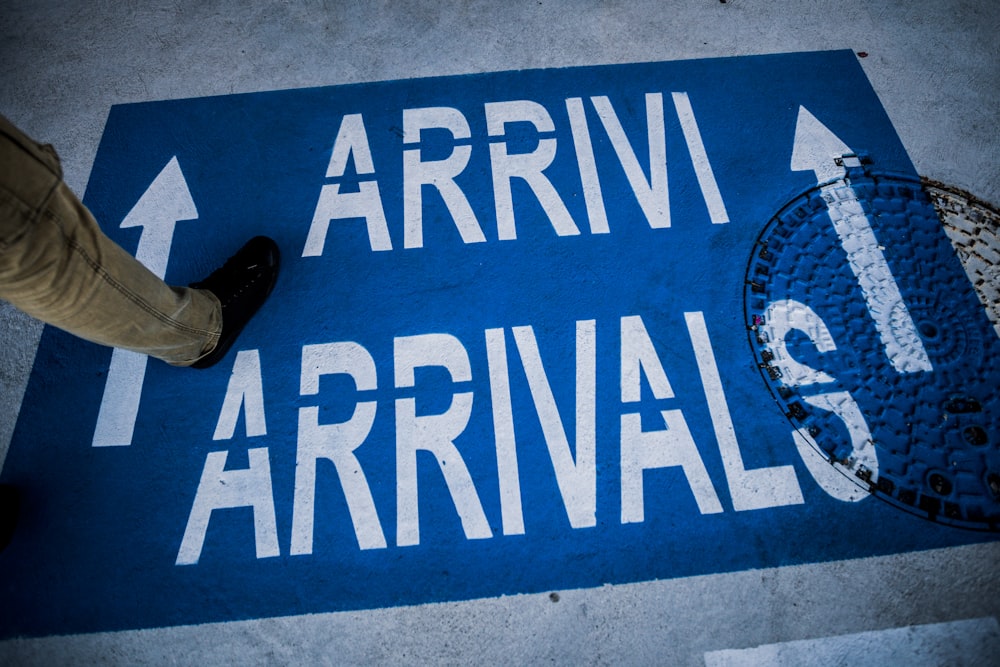I’ve been encountering arrival a lot lately in emails from retailers: spring arrivals, April arrivals, 200+ new arrivals, estimated arrival by ___. And you know how it goes: Look at any word long enough and you start to see it as something unfamiliar, even foreign.

It was the /riv/ in the middle of the word that got me thinking: Was it related, maybe, to French rive, as in Rive Gauche? French rive means “shore,” so . . .
Voilà!
Here’s our cher ami the OED with the etymology of arrival, which arrived on English shores sometime in the 13th century in the linguistically fertile wake of the Norman invasion:
Anglo-Norman arrival, arrivall, arivail, arivaill, arivaille, arrivaile landing place (second half of the 13th cent.), act of reaching the end point of a journey, (specifically) landing, disembarkation (all early 14th cent. or earlier) < ariver, arriver arrive v. + ‑al, ‑ail, etc. ‑al suffix1
For more than a century arrival meant “coming into port” or “disembarkation.” Gradually it acquired terrestrial senses as well, including “appearance on the scene” and “the birth of a child” (often as new arrival).
The verb form, arrive, had similarly watery connotations when it arrived: “to come to one’s destination by ship or boat.” That’s because the Latin source is rivus, “stream,” which has also given us river, riverine, and riparian.1
So now I was wondering about the ar-less form, rival. Related? Surprisingly, yes.

A rival was originally “a person living on the opposite bank of a stream from another” and “a person who is in pursuit of the same object as another.”
All this talk of arrivals reminds me of a gleaming granite plaque I saw in 2010 at the Americano restaurant in San Francisco’s Hotel Vitale, near the Embarcadero. It bore an engraved message.
My photo is a little dim; here’s the transcription:
Gazing upwards at our ceiling you will see commissioned photo-portraits of San Franciscan arrivistes from other lands; the latest generation of successful entrepreneurs (three of them are local restauranteurs) to live the American Dream and become ‘Americanos’.
(Emphasis added.)
“Arriviste” — from the French arriver, to arrive — does not mean what they think it means. It does not mean “arrival” or “newcomer”; rather, for more than a century it has meant “a pushy, ambitious person” or “an upstart,” someone intent on “arriving” in society. It has no positive connotations.
There are at least five additional usage errors in the sign, which contains a mere 36 words and which was literally etched in stone. See whether you can spot them all.
A poignant postscript for those of you who have arrived at the end of this newsletter: Hotel Vitale closed permanently sometime after March 2020, when its final Instagram post was published. It has been replaced by the 1 San Francisco Hotel (terrible name), and the Americano restaurant is now Terrene, whose name is a medieval English word meaning “earthy” or “terrestrial.” The sign? Gone. Vanished. Swept away.
But not the British and Wisconsinite place name Ripon, which is Old English. The verb to rive — to split or tear apart — is also unrelated. It was borrowed from early Scandinavian; the modern Icelandic counterpart is rifa. As for Italian arrivederci, do not be fooled: It comes from ri + vedere, to see again.





Nevertheless the Hotel Vitale had a fun outdoor deck with a great view of the SF Bay used for gatherings. Like many places here in SF its real demise was the pandemic and no parties allowed of course. What’s there now is criminally overpriced and boring. The erroneous inscription would even be an improvement.
'Look at any word long enough and you start to see it as something unfamiliar, even foreign.'
You're probably aware that there's a name for this phenomenon. See 'semantic satiation' at Wikipedia.